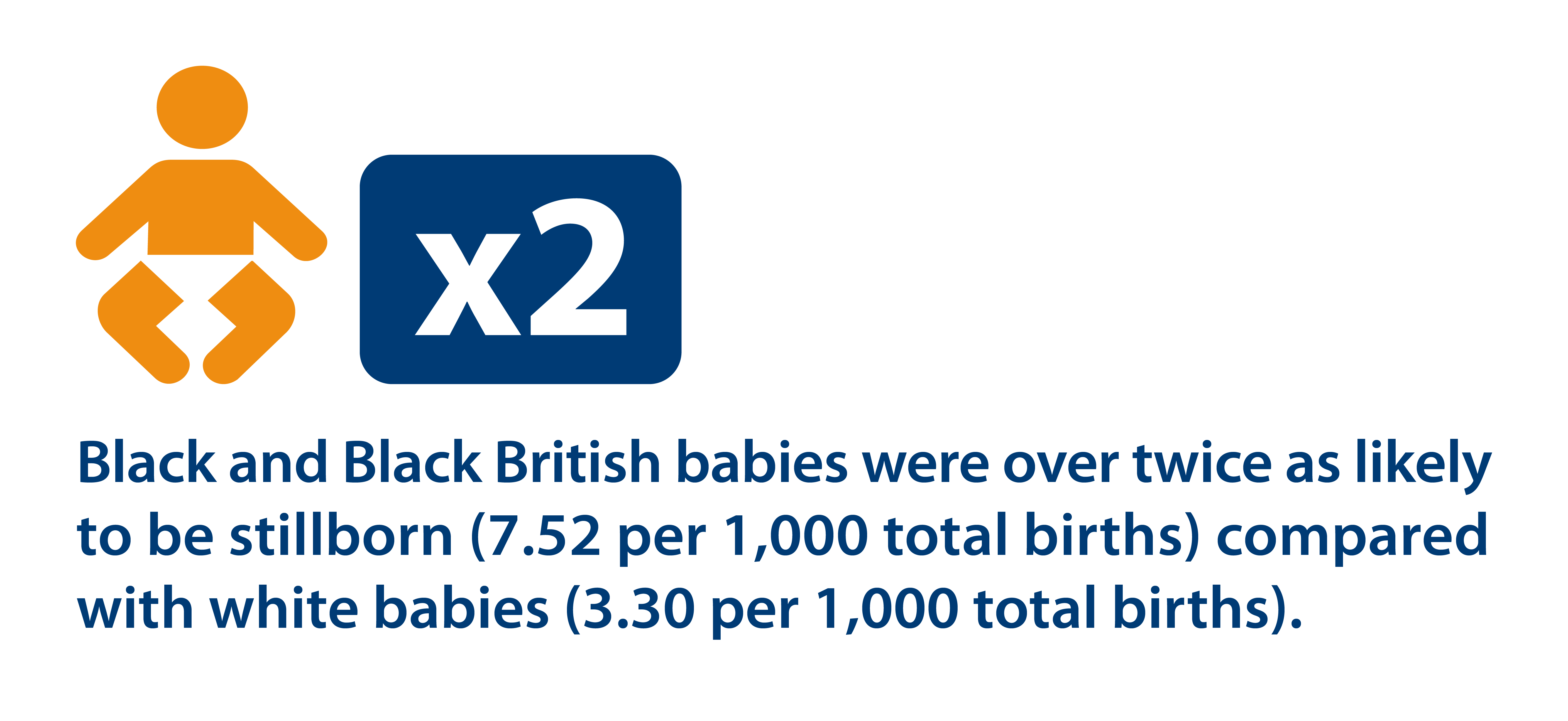We’re sometimes asked why Sands is working on projects that focus on specific groups, rather than all babies. This post explains why Sands is committed to work to tackle inequalities in pregnancy loss and baby deaths.
Sands is committed to saving babies’ lives and creating a world where fewer babies die. One of the ways we will achieve this is by making care safer for babies, pregnant women and birthing people.
Over the years we have:
- Supported and funded key research which has transformed our understanding of pregnancy and newborn babies
- Supported families to stay safe during pregnancy with straight talking health information
- Worked with health professionals help improve care when a baby does die.
With focused effort, the overall rates of babies surviving has steadily improved. When we look closely at the rates of stillbirth and neonatal death, we can see that this improvement hasn't been felt by all groups. Some families remain more likely to experience pregnancy loss or the death of a baby, even though there has been an overall decline.
What does this mean for our work?
To save more lives, we must look carefully at which groups are at highest risk and where death rates haven’t reduced in the same way.
Two of the groups of babies we are especially worried about are those from Black and Asian backgrounds. As groups, they are more likely to die.

If between 2017-2021 the rates of stillbirth and neonatal death rates for Black and Asian babies had been the same as for white babies, 1,704 more babies would have survived. This highlights how many babies' deaths could have been prevented with better care.
No baby should be at higher risk of death because of their ethnicity, it simply isn't right.
The individual chances of pregnancy loss or the death of a baby can depend on many different and sometimes complicated factors. However, some Black and Asian parents have reported experiencing racism within maternity and neonatal care.
Why is listening as a principle so important?
We know the power of listening to parents, and we have seen how it can save lives. Evidence tells us that there are groups of people whose voices and experiences are often overlooked. Black and Asian bereaved parents are two of these groups.
By not listening to bereaved parents from higher risk groups, we miss opportunities to learn. Safety initiatives and research can be based on what professionals perceive to be the problem, and not the lived reality that faces many parents. As a result, new safety initiatives may not be as helpful or effective for families at higher risk. This can mean that harmful practices continue unchallenged.
We are calling for health professionals, researchers, and policy makers to put parents’ voices at the heart of their work. We're asking them to reach out and listen to families who often go unheard.
What's next?
Our important next step is to make sure that people who can influence care are aware of the findings of the Listening Project report. We are working to share our work with key decision-makers, health professionals and politicians, this will be done through campaigning, policy, training, and research work. We want them to commit to making a difference.
We have already had some success in England where the Government have committed £50 million to research in this area, but there is still more to do. You can help by contacting your local elected representatives and asking them to take this up with Government.
It’s important for us all to get involved in this as it raises awareness of pregnancy loss and baby death across all communities in the process.
Find out more about the experiences of Black and Asian bereaved parents whose baby died during pregnancy or shortly after birth.
Support available from Sands
At Sands, we understand how devastating it is when a baby dies as many of us have been through the experience ourselves.
We know that everyone grieves differently and there is no right or wrong way to grieve. Each person needs different types of support, and this can change over time. There are many channels through which we can support you.
We offer dedicated support for South Asian communities and support for Black communities. This includes online support groups, support for men and much more, including updates on Sands’ work to support both of these communities.
Written by Mehali Patel, Research Manager
The experiences of other bereaved parents
Ansa, bereaved mum and Founder of HOPE Bereavement Support charitable organisation, previously spoke to Sands about her care.
She said: “My experiences have been shocking, in 2008 I asked for a birthing mat for my husband to lay down on the floor and I was told covertly ‘He should be used to sleeping on the floor where he comes from – he can sleep on the floor.’ That was a senior white midwife during delivery when I’d lost my baby.”
She added: “I lose a lot of blood with my losses. When we start going lighter we don’t go pale, we go yellow. I was yellow, going to collapse and this senior midwife was adamant I was fine and shoving me around, and I collapsed in front of everybody in the team. There were lots of apologies, but nothing came of it. It felt like as a patient I was invalidated, I was vulnerable and spoken over many times.”
You can hear more from Ansa in a recording of our Breaking the silence on baby loss within the South Asian communities webinar.
